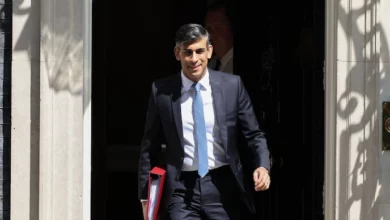EU Plan, Even If Watered Down, Is Designed To Fight Climate Change To Advance To Final Votes
Institutions inside the European Union and environmentalists on Friday welcomed a significant proposal to strengthen environmental protection and combat climate change across the 27-nation bloc, but with reservations.
The plan is a crucial component of the EU’s lauded European Green Deal, which aims to set the most aggressive climate and biodiversity objectives in the world and position the EU as the worldwide authority on all climate-related matters. However, the EU’s convoluted approval procedure has been very difficult for it to navigate, and only a modified version will now go forward with final votes.
The breakthrough deal reached late on Thursday between the European Union and its member states ought to have marked the conclusion of the ratification process. However, considering the uproar the idea has sparked in the past, there might still be some obstacles in the way of the final votes, which are often rubberstamped.
Due to strong resistance in the EU parliamentary, mainly from the biggest political party, the Christian Democrat EPP, the proposal has somewhat lost its progressive edge during the summer discussions.
“There is not much overlap between the final text of this law and the original proposal,” said Christine Schneider, an EPP lawmaker. The main European conflict over how to address climate change was also brought to light by the opposition of the EPP. Notwithstanding the wave of heat waves, floods, and droughts that have ravaged most of Europe, the EPP intends to put a halt to these environmental initiatives and prioritize economic competitiveness over the course of the next five years.
In order to cover at least 20% of the region’s land and marine areas by 2030, member nations would need to satisfy restoration objectives for certain ecosystems and species. However, disagreements over terms that allowed member states to circumvent the regulations and exclusions dogged the discussions.
“The law has been so weakened by negotiators that it may become ineffective in real-world situations and be easily abused,” said Ioannis Agapakis, an attorney with the environmental organization ClientEarth. He said that rather than placing the EU at the forefront of biodiversity protection, the weakening of the rules “have set a very frightening precedent for EU law-making.”
However, the extreme right, the EPP, and other conservatives have maintained that the measures would damage farmers, increase inflation, and jeopardize food security.
Furthermore, even when a compromise language was reached, Schneider of the EPP refused to fully endorse the proposal for the final votes in the parliament, casting doubt on the EU’s plan’s eventual acceptance.
Schneider said, “The EPP Group will now carefully review the result of today’s deliberations, bearing in mind that agriculture and forestry play a key role in both restoring nature and accomplishing our climate objectives. We can only guarantee Europe’s food security after that.







